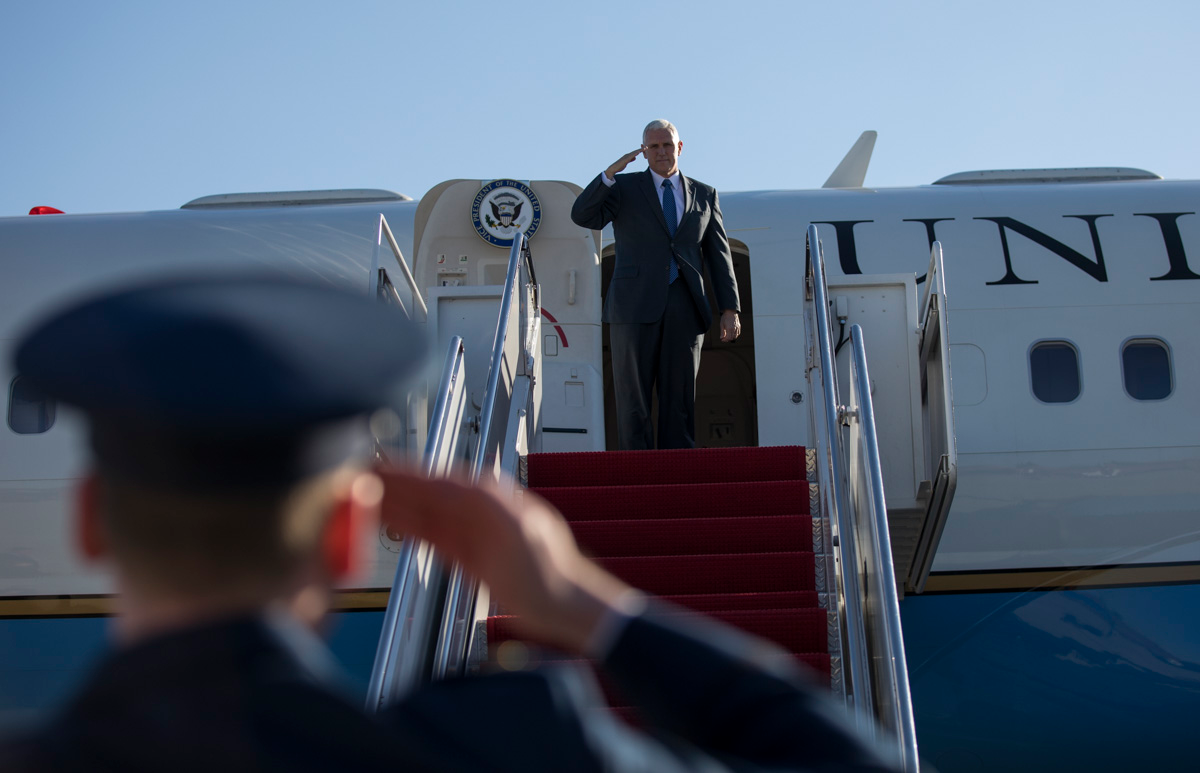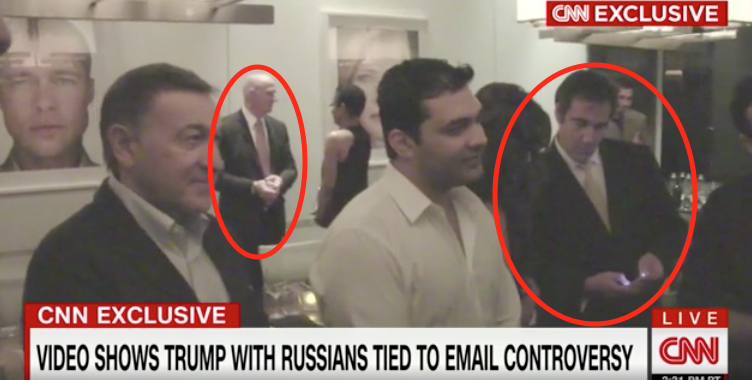The Trump Organization Is Not the Sitting President
In his sentencing memorandum submitted late last night, Michael Cohen laid out what investigations he has cooperated with so far:
Beginning before the entry of his plea on August 21, 2018, and continuing thereafter through late November, Michael participated in seven voluntary interview meetings with the Special Counsel’s Office of the Department of Justice (“SCO”). He intends to continue to make himself available to the SCO as and when needed for additional questioning. He also agreed to plead guilty to an additional count, namely, making false statements to Congress, based in part on information that he voluntarily provided to the SCO in meetings governed by a limited-use immunity proffer agreement.
[snip]
Michael has also voluntarily met twice with representatives of the Office, and responded to questions concerning an ongoing investigation. In connection with this inquiry, he intends to continue to make himself available as and when needed by the Office.
Michael has similarly met voluntarily with representatives of the New York State Office of the Attorney General (“NYAG”) concerning a state court action in which the NYAG has sued the Donald J. Trump Foundation and certain individual defendants, including Donald J. Trump. He also provided the NYAG with documents concerning a separate open inquiry. As above, Michael intends to make himself available to the NYAG to provide any additional cooperation it may request in these matters.
So:
- The Mueller investigation
- An open SDNY investigation (possibly just the one on campaign finance violations Cohen pled to, possibly more)
- NYS’ Trump Foundation lawsuit
- Another NYS investigation
That puts Trump’s eponymous organizations — his company and his foundation — squarely in the bullseye of law enforcement. The known details of all those puts one or the other Trump organization as an actor in the investigation. And we’ve already seen hints that the Trump Organization was less than responsive to some document requests from Mueller, such as this detail in a story on the Trump Tower deal:
According to a person familiar with the investigation, Cohen and the Trump Organization could not produce some of the key records upon which Mueller relies. Other witnesses provided copies of those communications.
If there’s a conspiracy to obstruct Mueller’s investigation, I’m fairly certain the Trump Organization was one of the players in it.
This is something I started thinking more about after reading this Walter Dellinger analysis of the OLC opinions on whether you can indict a sitting President (which is a really worthwhile read in any case). He notes how, once the President (or Vice President) enters into a conspiracy, you’ve got to name him, whether or not you indict him, to properly lay out the conspiracy.
The Jaworski filing notes how critical it is to identify the president as one of the criminal accused: “the identification of each co-conspirator — regardless of station — is a prerequisite to making his declarations in furtherance of the conspiracy admissible against the other conspirators.”
Although the brief concludes that “it is by no means clear that a President is immune from indictment” during his term, the special prosecutor chose not to indict the sitting president on the basis of “practical arguments.” Those arguments, however,
cannot fairly be stretched to confer immunity on the President from being identified as an unindicted co-conspirator, when it is necessary to do so in connection with criminal proceedings against persons unquestionably liable to indictment.
Naming the president as an unindicted co-conspirator was necessary for the grand jury to return a “true bill,” Jaworski argued, and “required here to outline the full range of the alleged conspiracy.” There exists, moreover, “a legitimate public purpose in reporting the fact that serious criminal charges against a government official have been made.”
The mere fact that an official has a personal immunity from prosecution does not bar the prosecution from alleging and proving his complicity as part of a case against persons who have no such immunity.
It would not be fair “to the defendants … to blunt the sweep of the evidence artificially by excluding one person, however prominent and important, while identifying all others.”
It made me realize something has been missing from every analysis of the indictment question I’ve seen: whether you can indict a sitting President’s eponymous corporate entities. Under Dellinger’s analysis, you’d have to include the Trump Organization in any conspiracy involving a Trump Tower in Moscow — it was the entity that signed the Letter of Intent, would be the entity that would obtain funding, and would be the entity that would profit.
But the Trump Organization did not get elected the President of the United States (and while the claims are thin fictions, Trump has claimed to separate himself from the Organization and Foundation). So none of the Constitutional claims about indicting a sitting President, it seems to me, would apply.
If I’m right, there are a whole slew of implications, starting with the fact that (as I laid out on a Twitter rant this morning), it utterly changes the calculation Nixon faced as the walls started crumbling. Nixon could (and had the historical wisdom to) trade a pardon to avoid an impeachment fight; he didn’t save his presidency, but he salvaged his natural person. With Trump, a pardon won’t go far enough: he may well be facing the criminal indictment and possible financial ruin of his corporate person, and that would take a far different legal arrangement (such as a settlement or Deferred Prosecution Agreement) to salvage. Now throw in Trump’s narcissism, in which his own identity is inextricably linked to that of his brand. And, even beyond any difference in temperament between Nixon and Trump, there’s no telling what he’d do if his corporate self were also cornered.
In other words, Trump might not be able to take the Nixon — resign for a pardon — deal, because that may not be enough to save his corporate personhood.
For virtually every other legal situation, it seems to me, existing in both natural and corporate form offers protection that can save both. But if you’re the President of the United States, simultaneously existing — and criminally conspiring — in corporate form may create all sorts of additional exposure any normal President would normally be protected from.
Update, 12/9: I’ve changed the title of this post, in part because comments here and on Twitter have convinced me that Mike Pence could pardon Trump Organization. The central point — that Trump seems to be ignoring the risk to his eponymous businesses — remains.








